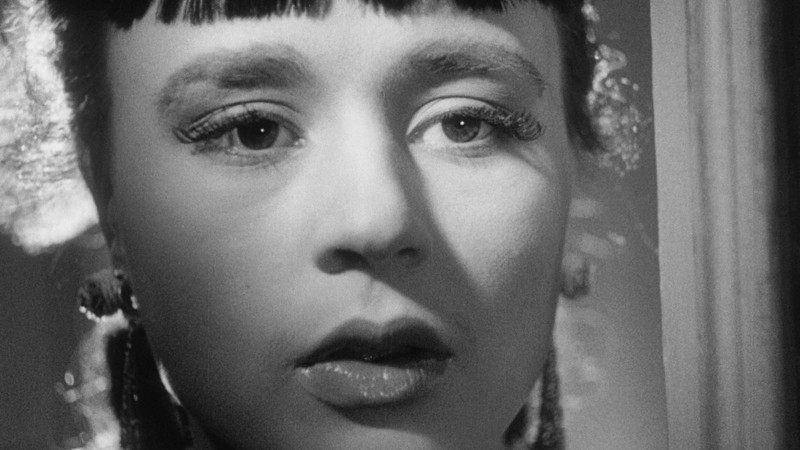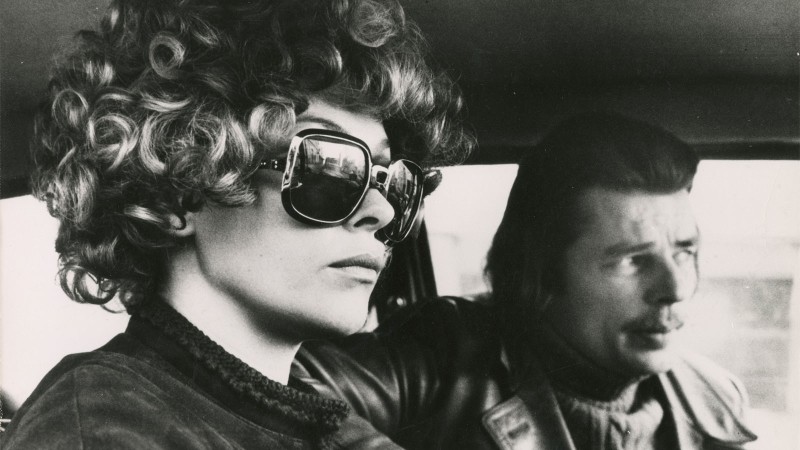Planet Waves

With the addition of twenty titles, Toronto (September 5 through 15) has topped off a lineup of 278 films. One of the twenty is The Room Next Door, the first full-length feature in English from Pedro Almodóvar, who will receive a Donostia Award in San Sebastián (September 20 through 28) in recognition of his “extraordinary contribution to the world of cinema.”
- Locarno is heading into its final weekend, and throughout the festival, Leonardo Goi has been editing the daily magazine, Pardo. Today, he talks at length with this year’s winner of the Pardo d’Onore Manor Award, Jane Campion. She started out as a student of anthropology—“a revelation for me”—before turning to painting, which “taught me to be super aware of the atmosphere. I remember I was studying overseas and really missing, in a bodily way, what I remembered about the New Zealand landscape and bush, and how deep a love I had for it. That’s why The Piano (1993) was so special for me.” Goi and Campion also discuss An Angel at My Table (1990) and The Power of the Dog (2021), and of course, genre and gender.
- Annie Baker shot Janet Planet in western Massachusetts, where she grew up, and like Ryusuke Hamaguchi’s Evil Does Not Exist, “the film emerges from the place where it is set, and is alive to the concerns of the people who live there, now or in the past,” writes Robert Rubsam for Liberties Journal. Both films present “a symbiosis of story and setting that creates what John Berger has called a ‘context of experience’ that directs the viewer out into the world, rather than linearly to the end of a narrative.” Too often, when one location stands in for another, the resulting film presents “a vision of life that arrives with motion-smoothing already turned on.” The worst-case scenario, argues Rubsam, is “the future promoted by AI boosters.”
- Clint Eastwood is “perhaps the archetypal American swing voter,” suggests Mark Asch at Screen Slate. “If Eastwood’s brand of straight-shooter libertarianism can shade into a crankish self-satisfaction that overestimates its own wisdom, he is, paradoxically, equally prone to a preoccupation with myth and a sentimentality about Great Men, from outlaws (A Perfect World, 1993) to heads of state (Invictus, 2009). These twinned aspects of the swing voter [are] the gruffly conspiratorial and the awe at historical grand narratives . . . Accumulated across his eight decades as a star text and auteur, the Eastwood filmography has become a record of American pathologies so voluminous and contradictory that it begins to look suspiciously like wisdom.”
- Currently presenting a selection of films Tobe Hooper made in the 1980s, MoMA has just wrapped a weeklong run of fiftieth-anniversary screenings of The Texas Chain Saw Massacre, which entered the Museum’s collection the year it came out. “In hindsight, Chain Saw’s presence in one of the leading archives of American art and culture seems only fitting,” writes the Austin Chronicle’s Richard Whittaker. “But in 1974, it was the source of outrage and debate.” Whittaker talks with MoMA film curator Ron Magliozzi, and in the New Yorker, Jackson Arn writes: “You can’t learn about how this film was made without gagging, but you can’t watch the results without marveling: not one frame or line or sound effect goes to waste, since Hooper couldn’t afford any, and this gives everything a tautness that you sense somewhere in the gut before the mind catches up.”
- All week long, contributors to IndieWire have been looking back to the 2000s, selecting, ranking, and writing about that decade’s best hundred films, its top fifty performances, and its thirty best scores as well as speaking with directors Todd Field (In the Bedroom, Little Children), Michael Mann (Collateral, Miami Vice), and Gregg Araki (Mysterious Skin). “When the sun rose on the start of the new millennium,” writes David Ehrlich, “the vast majority of films were shot and projected on film, superhero movies were still considered an outlandish gamble, middle-class malaise was American cinema’s preoccupying crisis, and James Cameron was the biggest director on the planet. By the time the smoke cleared ten years later, digital had pushed celluloid to the brink of extinction, Marvel was beginning to exert an iron grip on the multiplex, the listless men of Tyler Durden’s generation had found their own forever war to fight, and James Cameron was the biggest director on the planet (some things never change).”



